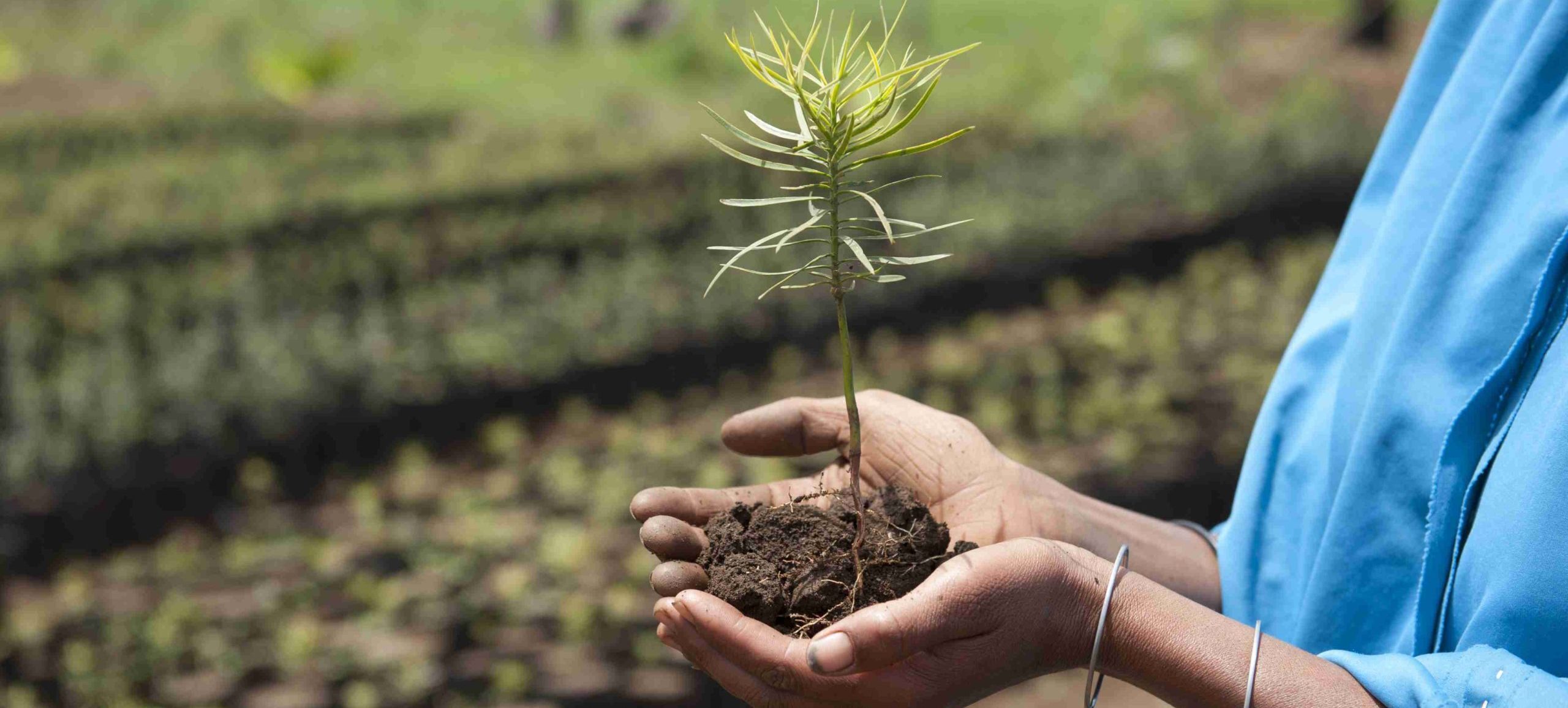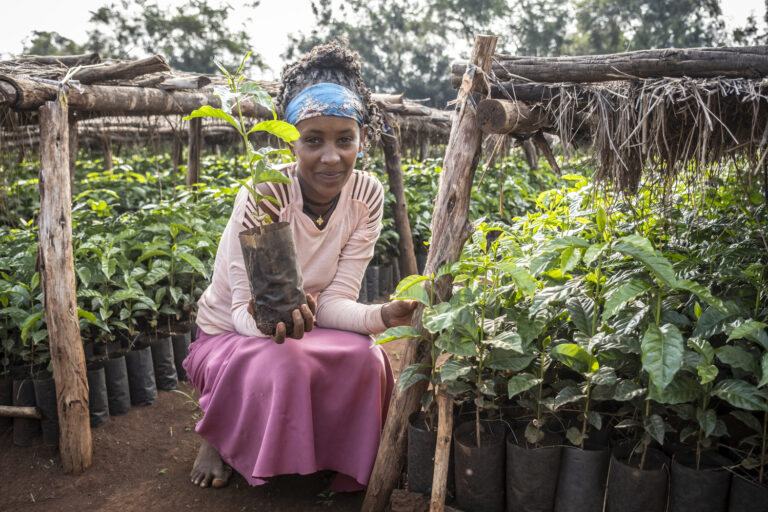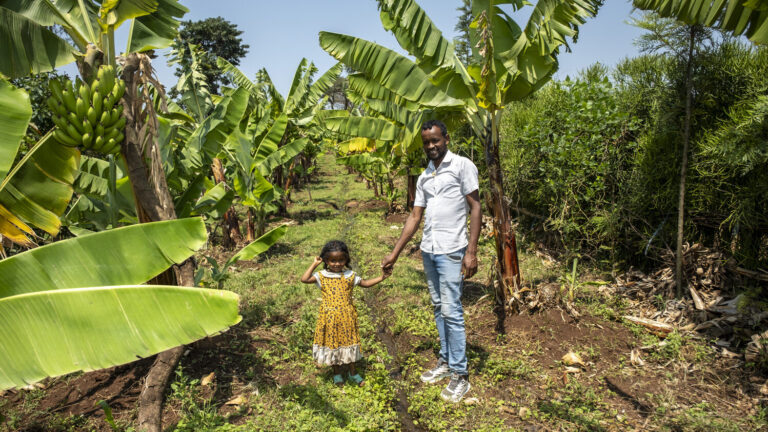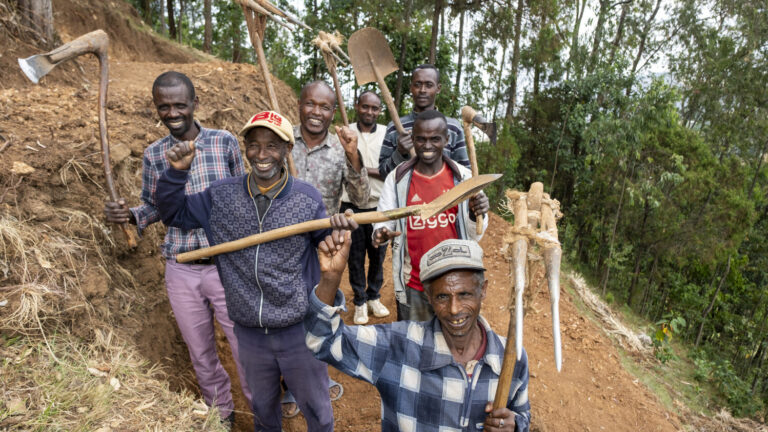
Sustainable agriculture and nutrition
The key to a profitable future
Over 70% of the people of Ethiopia live from farming. However, climate changes, erosion and population growth result in reduced yields year after year. The failure of only one harvest can lead to famine in an entire region.
Together with the Ethiopian farmers, Menschen für Menschen is striving to improve traditional farming methods in all project areas. The construction of terraced fields and consolidation by deep-rooting vetiver grass is a first, but in the long term effective step against erosion.

Each year about 20 million new seedlings are reared in tree nurseries for new planting. In order to not only preserve, but also augment the country’s remaining tree stock, in addition to the afforestation programmes the foundation has also initiated the distribution of “green stoves” and organizes training sessions for ecological farming. Menschen für Menschen is relying on the farmers passing on their knowledge and inspiring others all over the country.
Poor yields
For many smallholders the produce of the land does not even suffice until the next harvest. Some of the reasons are:
- Too small, parcelled cultivated areas
- Antiquated farming and irrigation methods
- Continuing erosion
- Lack of or irregular rainfall
- No access to seed
- Crop losses due to incorrect storage
Knowledge and new techniques
Menschen für Menschen is relying on the transfer of knowledge and new techniques. In courses, farmers learn how to terrace their fields and plant them correctly to maximize their harvests. In addition, they have access to improved seed and new fruit and vegetable varieties such as carrots, Swiss chard, cabbage, beetroot and tomatoes. Parents are then able to feed their children balanced and healthier diet in the long term.


Our activities
With a combination of measures, food security in an entire region can be improved. The farming families are able to build up stocks and secure themselves again harvesting shortfalls.
- Agricultural courses for farming and irrigation methods
- Erosion control and afforestation
- Establishment of tree nurseries to produce tree, fruit and vegetable seedlings
- Introduction of more productive hens and improved beehives
- Introduction of garden plots and distribution of grain, vegetable seeds and fruit tree seedlings
Afforestation of eroded land
For the rural population of Ethiopia wood is a precious commodity, particularly for building houses and huts, and for burning in stoves. Women and girls are often busy for hours collecting firewood. A further reason for deforestation is the need for new farmland when, for instance, the old fields have become unusable due to erosion or poor soil quality. According to “The World Factbook”, today only 12,2% of the surface area is forest.
With numerous measures, Menschen für Menschen is discouraging the felling of trees and promoting the protection of these natural resources. Energy-saving stoves, for example – so-called “green stoves” – help the women to save time with their daily tasks. In addition, they reduce the consumption of wood considerably. With extensive forest plantations and closed areas for trees, the Foundation is slowly helping to restore the environment in our project regions. Besides this, specially planted lumber is available to the inhabitants. The planting of indigenous trees consolidates the soil and returns the nutrients.